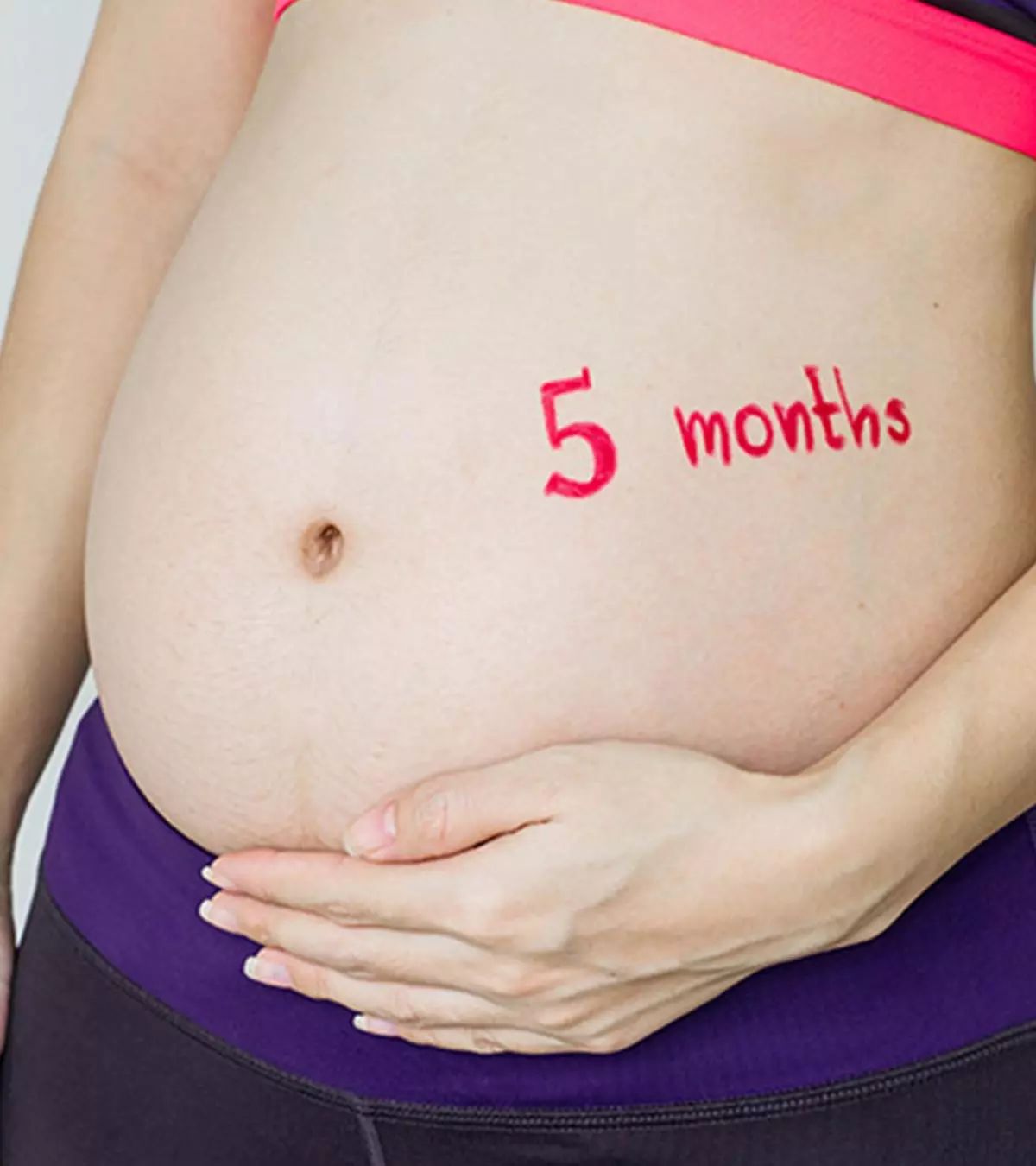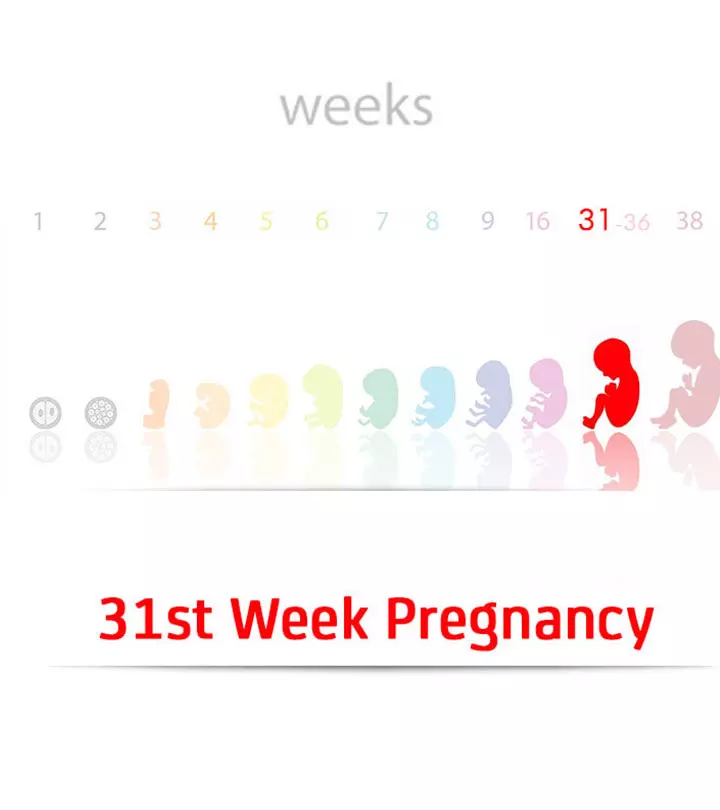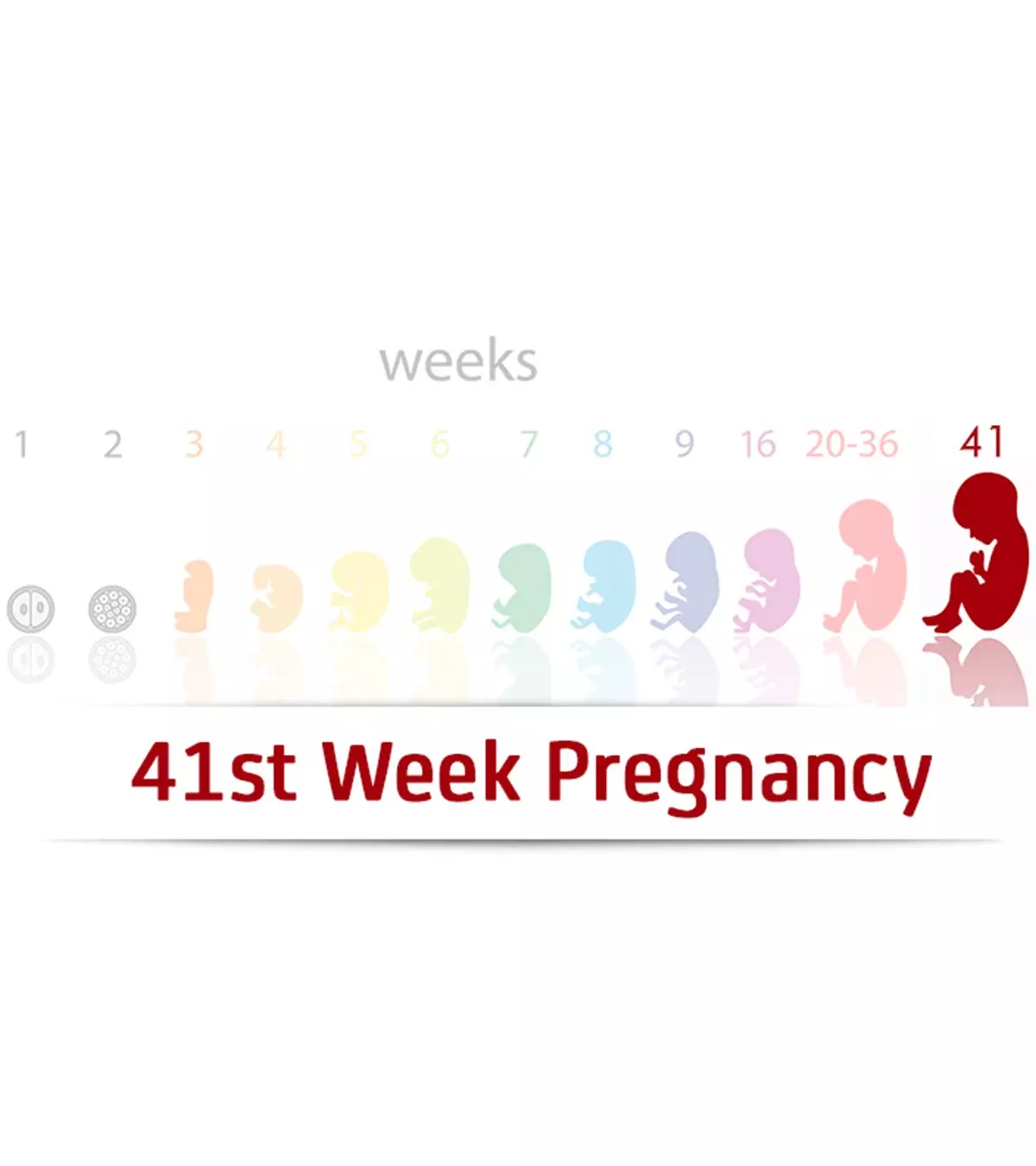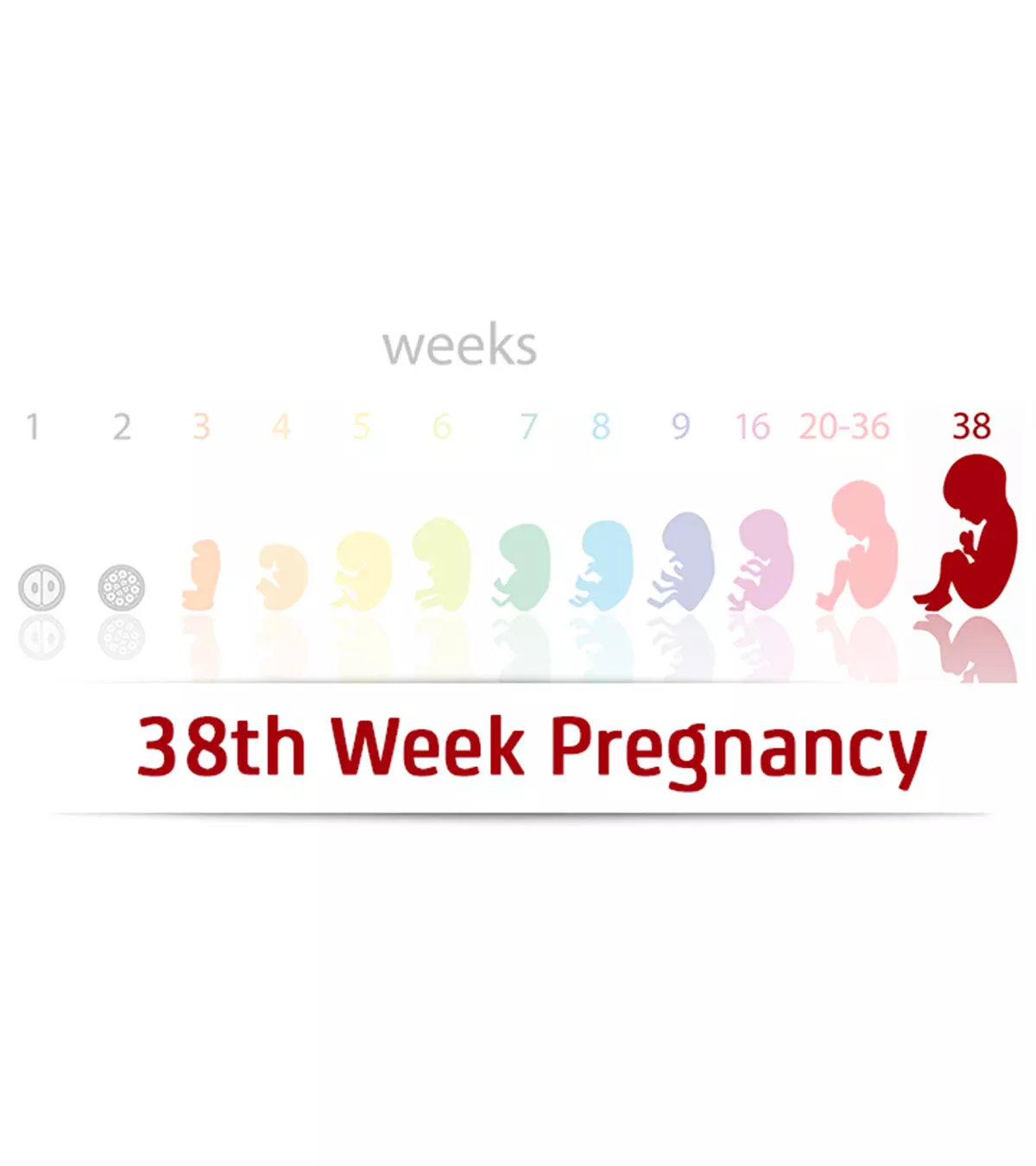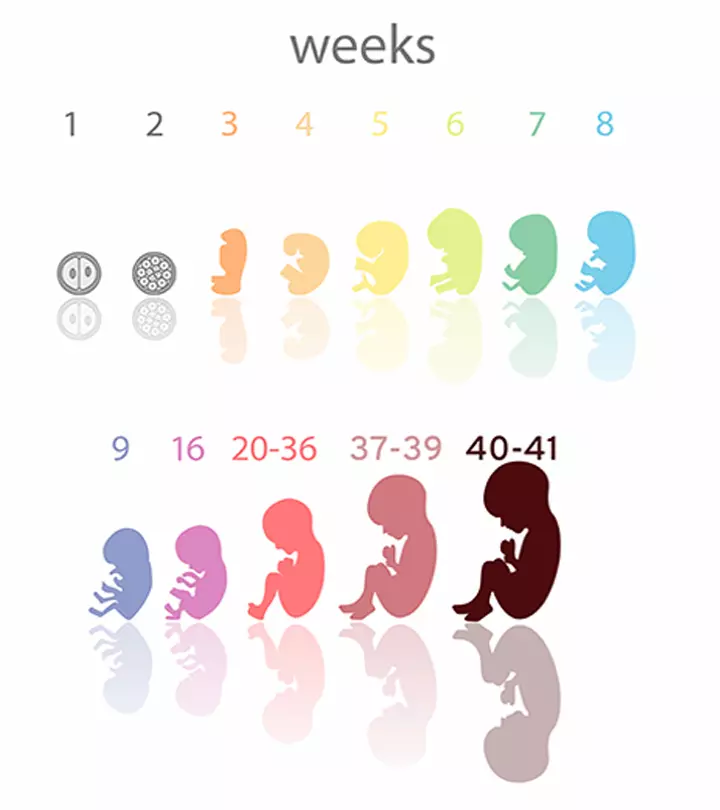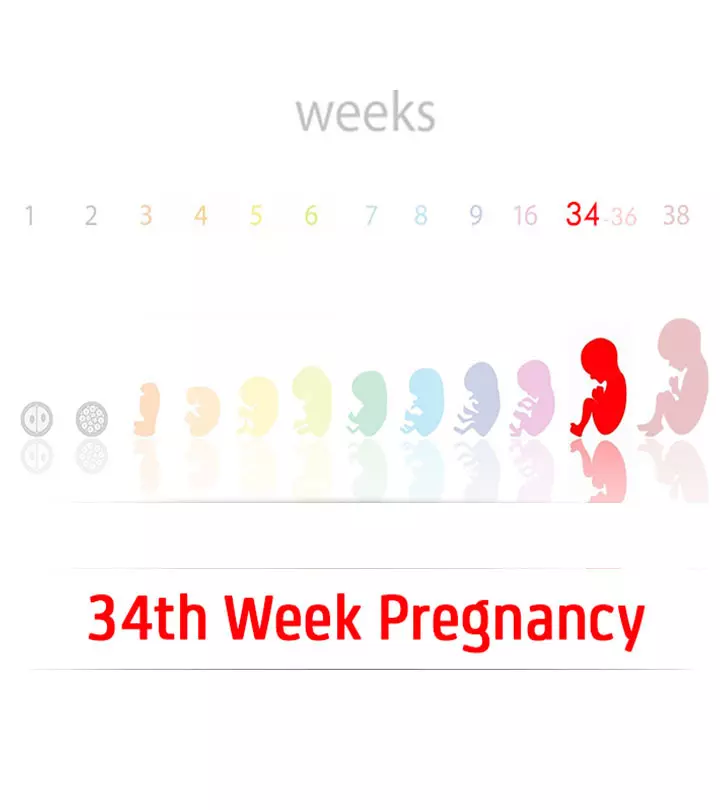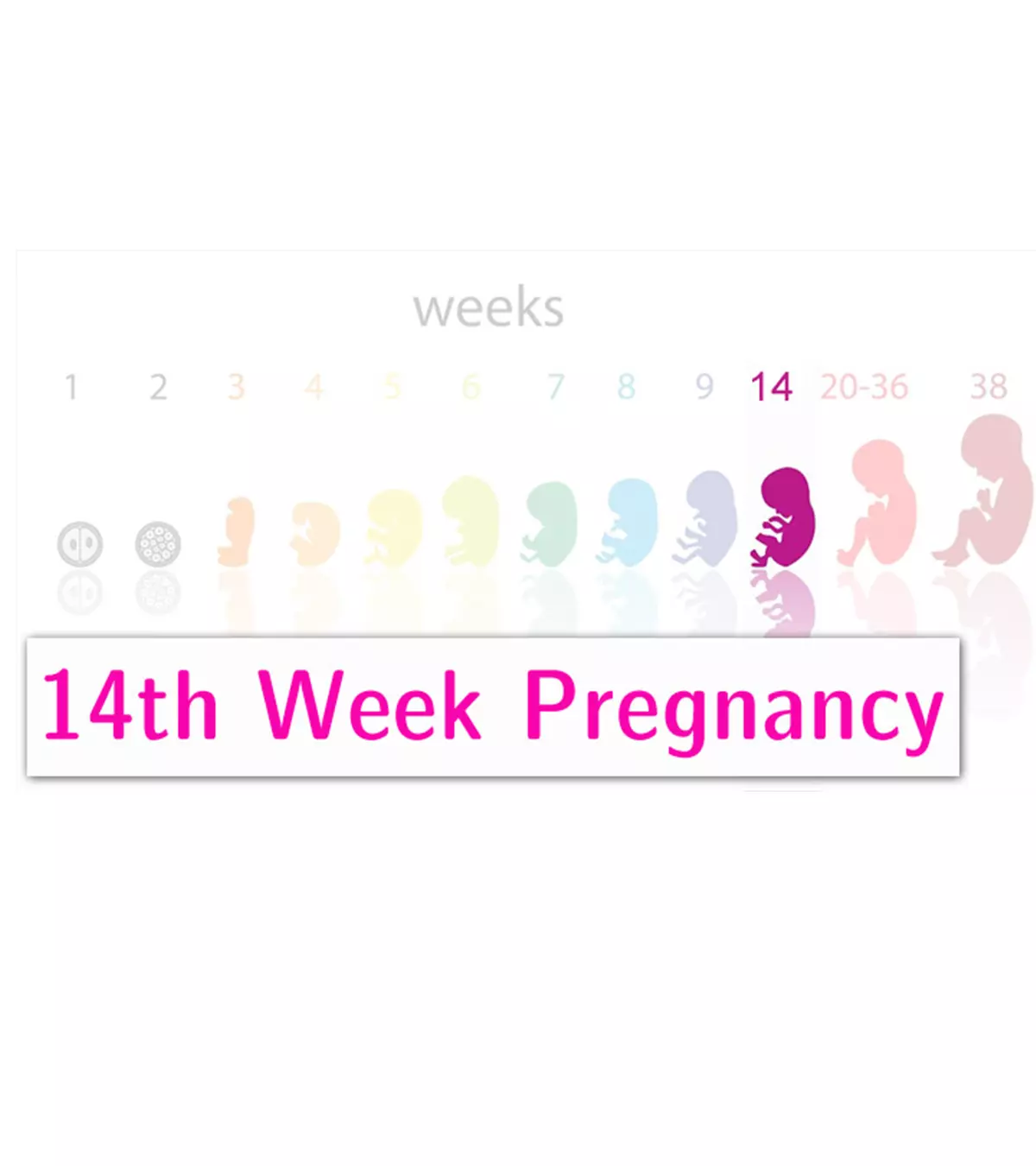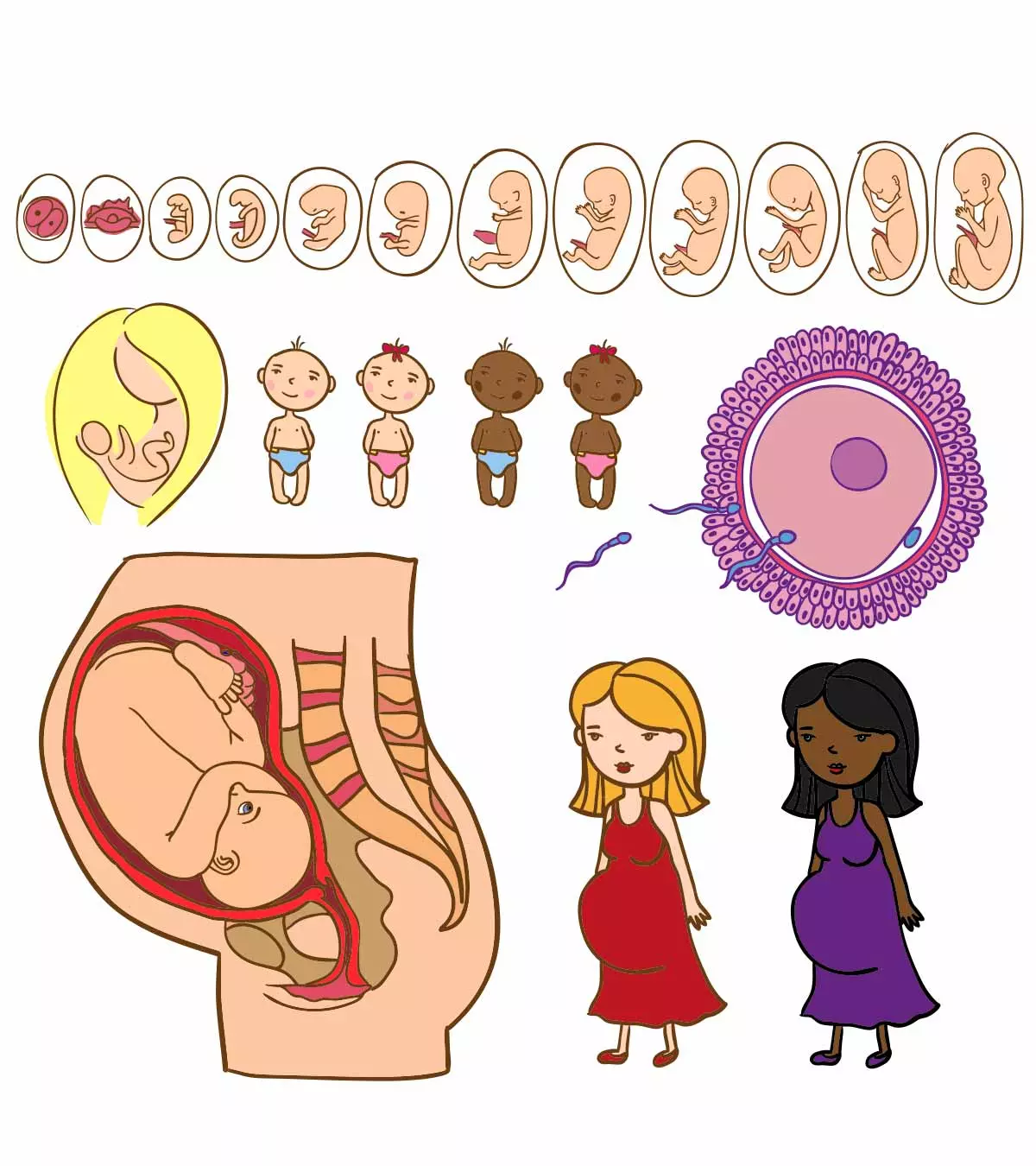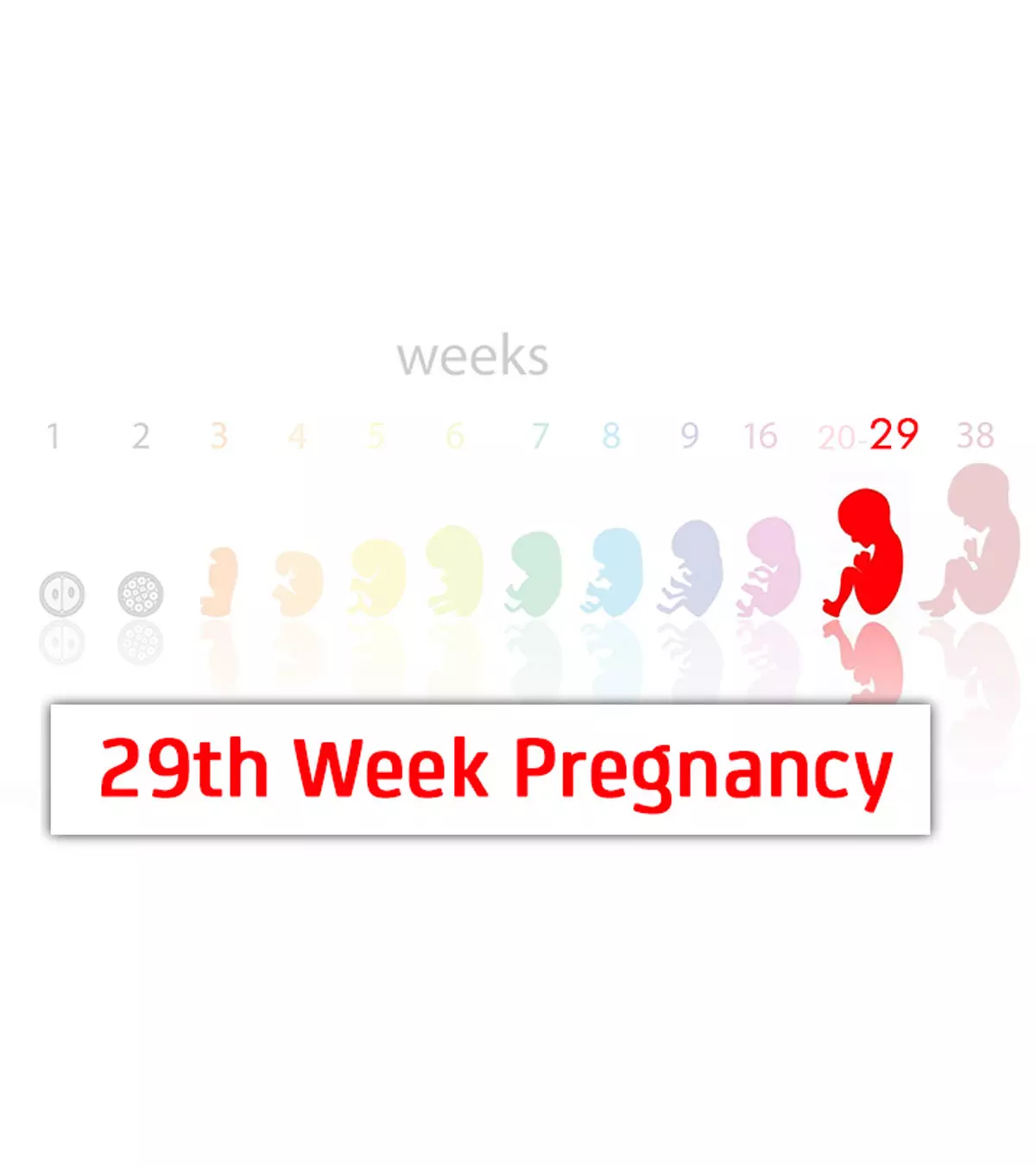
Image: ShutterStock
Key Pointers
- Baby is rapidly growing and currently the size of a butternut squash at 29 weeks of pregnancy.
- Symptoms that can be experienced include backaches, weight gain, headaches, nausea, and dizziness.
- Physical and emotional changes that may be observed include mood swings, stretch marks, enlarged breasts, and an itchy belly.
- Prenatal checkup may include a weight check, blood pressure test, urine test, and other tests as advised by the doctor.
- Useful tips to ensure healthy gestation include staying hydrated, eating a balanced diet, and getting enough sleep.
How Many Months Pregnant Are You At 29 Weeks?
At 29 weeks, you enter the seventh month and the third trimester of pregnancy.
Read this post to know how your baby is developing, what prenatal care you should take, what to expect, and tips for a smooth pregnancy.
How Big Is Your Baby This Week?
This week, your fetus is as big as a butternut squash (1). The baby measures 15.5-16in (38.6-40cm) in length and weighs 2.5-3lb (1.15-1.3kg) (2). Your baby bump will be quite prominent now.
Baby Development This Week
Here is how the baby develops this week:
| Body organs | Development |
|---|---|
| Eyes (3) | Rapid eye movements start. Pupils of eyes respond to light (4) |
| Brain | Brainwave activity begins. NeuronsiCells within the nervous system that act as messengers between nerve cells, muscle, or gland cells. are forming (5) |
| Mouth | Tooth buds begin to appear. Taste buds can differentiate between sweet and sour (6). Your baby may begin to smile |
| Lungs (7) | Practices breathing more consistently, in a regular rhythm. BronchiolesiSmall branches of air tubes in the lungs. are developing |
| Bone marrow | Starts producing red blood cells |
| Skin | Is less wrinkled as more white fat gets deposited |
| Bones (8) | Getting harder and stronger. Skull remains soft |
Fetal movement and position: By this week, your baby is very active and starts to kick a lot. However, the frequency may start decreasing due to reduced space inside, which makes it difficult for the baby to make movements. The baby may also attain a head-down position or a breech position this week. In the case of breech position, there is still time for the baby to move to the optimal position for birth.
What Symptoms Do You Experience In The 29th Week Of Pregnancy?
Some symptoms of pregnancy you might experience this week include:
- Weight gain: An average weight gain of one to two pounds per week during the third trimester of pregnancy is considered safe, as recommended by the American Pregnancy Association (APA) (8). However, in case of women who have BMI less than 18.5 and greater than 24.9, the recommended weight gain rates usually range in between 0.5 to one pound.
| BMI | Below 18.5 | 18.5 – 24.9 | 25 – 29.9 | 30 and above |
|---|---|---|---|---|
| Weight gain (Pounds) | 17- 26 | 15- 23 | 10-17 | 7-14 |
- Headaches: The hormonal changes and stress can cause occasional headaches during pregnancy.
- Food cravings: You may experience cravings for both food and non-food items.
- Lightheadedness: The pressure that the growing uterus exerts on the blood vessels can restrict the blood flow to some parts of the brain, which causes lightheadedness or dizziness.
- Fatigue: You may experience fatigue in the third trimester due to the extra weight you are carrying, interrupted sleep, and frequent urination.
- Shortness of breath: As the enlarged uterus pushes the diaphragmiThe thin muscle that aids in breathing and is situated below the lungs and heart, separating the chest from the abdomen. up, it causes breathing difficulty.
- Backache: The extra pressure exerted by the baby’s weight on the lower back causes a backache. In the case of multiple pregnancies, women may feel more pressure on their back.
- Hemorrhoids: The uterus puts pressure on the blood vessels in the rectal and vaginal area, which causes the veins to swell up. Hemorrhoids can be sometimes painful.
- Constipation: The progesteroneiA female reproductive hormone that plays an important role in menstruation, pregnancy, and breastfeeding. hormone relaxes the digestive tract, which slows down the digestion process and retains the food longer in the tract.
- Heartburn: The growing uterus pushes the gastric juices upward into the esophagus, causing heartburn.
- Frequent urination: The growing uterus puts pressure on the bladder, which increases the urge to urinate.
- Trouble sleeping and migraines: The aches, anxiety, and urge to urinate frequently deprive you of a sound sleep. Sometimes, blinding headaches like migraine hit.
- Pregnancy brain: Forgetfulness is quite common this week.
- Changes in nails: The hormonal changes can cause brittle nails or hasten their growth.
- Edema: Water retention in the body causes swelling of the face and feet.
- Hot flashes: A shift in the body temperature makes you feel hotter.

- Varicose vein: Increase in the blood flow to the lower parts of the body causes swelling of the veins in the legs.
- Braxton Hicks contractions: Now that you are in the third trimester, you may experience Braxton Hicks contractions. They are the feeling of pressure around your abdomen, similar to labor pains. Braxton Hicks contractions are called “false pains.”
You will also notice physical and emotional changes as the pregnancy progresses.
Changes In The Body At 29 Weeks
Physical changes
- An enlarged and itchy belly
- Enlarged breasts
- Darker and bigger areola
- Stretch marks
- Brittle nails
Emotional changes

- Anxiety
- Mood swings
- Nesting
This week, you are a little closer to full term and at risk of preterm labor. More about it next.
Your OB/GYN Visit

The preliminary tests this week include:
- Weight check
- Blood pressure
- Symphysis fundal heightiIt is measured from the mother's pubic bone (symphysis pubis) to the top of the womb to determine if a baby is small for its gestational age.
- Check fetal heart sound
- Urine test to check for sugar and protein
- An ultrasound is done in the case of multiple pregnancies or high-risk pregnancy to track the baby’s growth.
Your doctor may suggest you continue your prenatal vitamins. Proper prenatal care at home is necessary to stay healthy and minimize the chances of preterm labor.
Tips For Mom-to-be

- Do not stand for a long time.
- Count of the baby’s kicks. Lie down and feel the kicks. If you don’t feel them, then munch on some sweet snacks, urinate, count in the left lateral position. The sugar rush can make the baby move.
- Stay hydrated.
- Give your body enough rest.
- Stay calm and relaxed.
- Eat healthy, home-cooked food.
- Have smaller meals at regular intervals.
- Eat fiber-rich foods including fruits, vegetables, whole grain bread, breakfast cereals, bran, and prunes.
- Do not lift heavy objects.
- Do not take medications without the doctor’s prescription.
- In the case of hemorrhoids, apply hazel witch cold compresses on the affected area for comfort.
- Take your supplements.
- Complete two doses of tetanus toxoids in between 17-35 weeks
- Take childbirth classes to learn about labor positions and different pain relief techniques.
- Engage in exercises such as walking. Practicing Kegel exercisesiExercises that strengthen pelvic floor muscles and prevent accidental leakage of urine or stool. will help strengthen the pelvic floor muscles.
- Wear loose and comfortable maternity clothes.
- Start planning your baby shower.
- If you are working, you can inform your boss about your plans on maternity leave.
- Read up about labor and delivery so that you are well-prepared in advance.
- Pack a hospital bag containing the supplies you would need most before and immediately after delivery.
- Start nursery preparation activities with your partner.
- Enroll in prenatal yoga classes to learn calming techniques.
Seek your partner’s support as and when you need at this time.
 Point to consider
Point to considerTips For Dad-to-be

- Accompany you during the prenatal visits.
- Create a happy environment at home.
- Join you in workouts.
- Help you with household chores.
- Plan an outing for you.
- Stay patient with your mood swings and try to understand what you are going through.
- Go for maternal shopping.
- Get all the baby gear in place.
- Start looking for baby names.
- Read childbirth education material and parenting books to know what to expect before and after childbirth.
 Quick tip
Quick tipFrequently Asked Questions
1. Is the baby fully formed at 29 weeks?
No, at 29 weeks, your baby is still growing, and the organs continue to develop. However, at this stage, they have fully developed hearing (9).
2. Can I travel 29 weeks pregnant?
14 to 28 weeks of pregnancy is considered an ideal and safe time to travel. Traveling after 28 weeks may be an uncomfortable experience (10).
3. How often should a woman see her doctor or midwife during the 29th week of pregnancy?
During the 29th week of pregnancy, it is important for a woman to schedule prenatal appointments with her doctor or midwife every two weeks (11).
4. What questions should I ask the doctor at the 29-week prenatal appointment?
You may ask your doctor questions about your and your baby’s health. Alternatively, you may tell them how you feel and ask if your feelings are typical for pregnancy. You may also ask questions like – “What if my water breaks during the night?” “How can I distinguish between false labor and real labor?,” “Is it common for my hands and feet to be swollen?” or “How likely is it that I will require a C-section?”(12).
5. What are some important things a woman should prepare for as she approaches the third trimester?
During the third trimester of pregnancy, women should prioritize maintaining holistic well-being by focusing on overall health. Regular prenatal care, including frequent visits to healthcare providers, becomes crucial for monitoring the health of both the mother and the baby. These preparations guarantee a seamless and knowledgeable transition into the final stage of pregnancy.
6. What should I be doing to prepare for labor and delivery at 29 weeks pregnant?
At 29 weeks of pregnancy, it is not crucial to focus on preparing for labor and delivery. However, you can attend childbirth classes, discuss birth preferences with your healthcare provider, create a birth plan, and pack a hospital bag with essentials.
The 29th week of pregnancy brings more baby kicks, weight gain, dizziness, back pain, constipation, trouble sleeping, and edema, among other symptoms. Eat home-cooked meals in small portions frequently to prevent digestive issues such as heartburn and constipation. Stay hydrated and practice mild exercise to ease discomfort and swelling. Remember to bring relevant lifestyle changes, such as avoiding lifting objects that are heavy and managing stress to remain calm. Make sure you take your prenatal supplements and attend check-ups and vaccinations as instructed by your doctor.
Infographic: Pregnancy Symptoms At 29th Week Of Gestation
Being in the 29th week of pregnancy means you’re already in your third trimester. Your baby bump will look more evident now, and your fetus will be as big as the butternut squash. Check out the infographic below to learn about several symptoms you may observe at this stage of pregnancy.
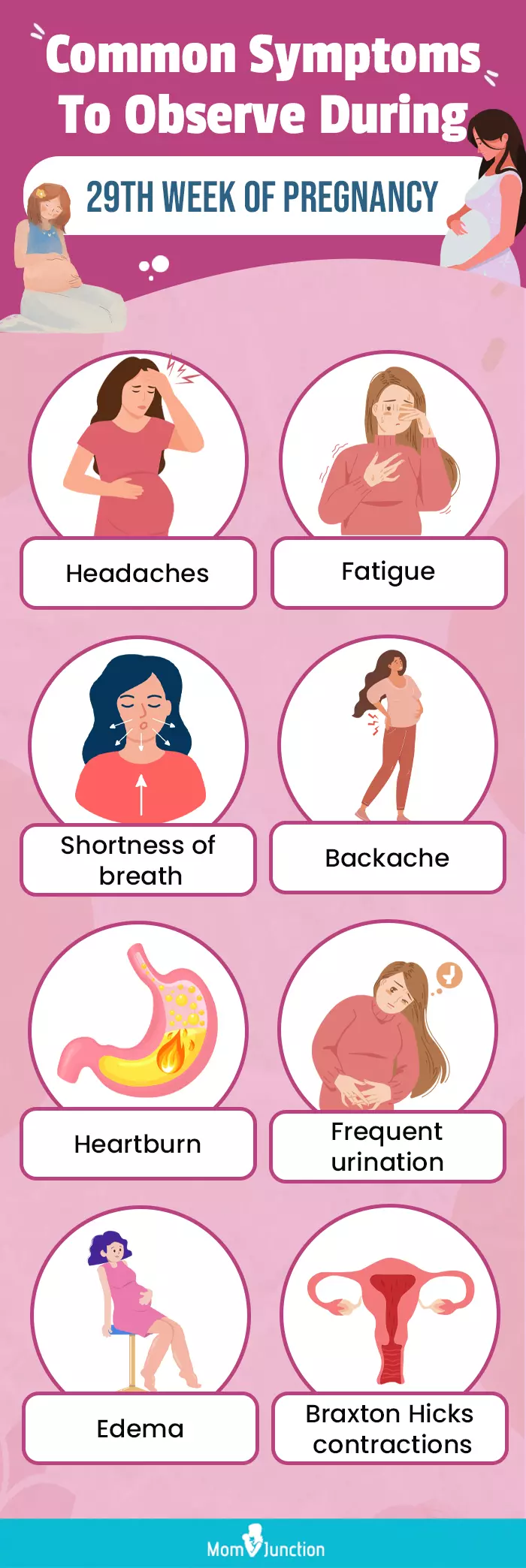
Illustration: Momjunction Design Team
Illustration: 29 Weeks Pregnant: Symptoms Body Changes & Baby Development
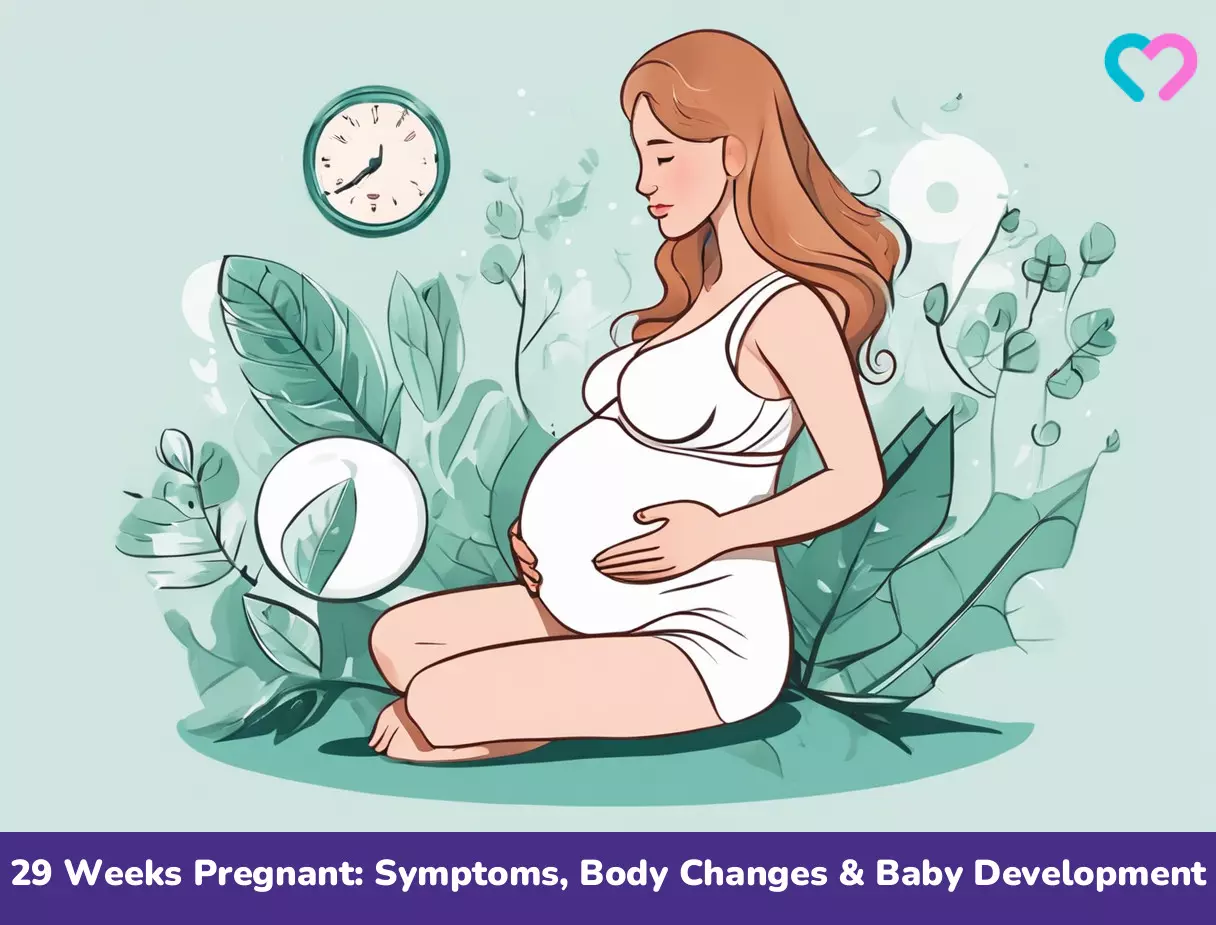
Image: Stable Diffusion/MomJunction Design Team
Expect to feel more movement from your baby as they grow and develop during your 28th week of pregnancy. In this video, discover more on what to expect during this exciting time.
References
- 29 weeks pregnant – all you need to know.
https://www.tommys.org/pregnancy-information/im-pregnant/pregnancy-week-by-week/29-weeks-pregnant - Fetal development.
https://embryology.med.unsw.edu.au/embryology/index.php/Fetal_Development - How your fetus grows during pregnancy.
https://www.acog.org/womens-health/faqs/how-your-fetus-grows-during-pregnancy - Prenatal Summary.
https://www.ehd.org/prenatal-summary.php - Pregnancy week-by-week.
https://www.duedatecalculator.org/pregnancy-week-by-week/ - 29 weeks pregnant.
https://raisingchildren.net.au/pregnancy/week-by-week/third-trimester/29-weeks - How your fetus grows during pregnancy.
https://www.acog.org/womens-health/faqs/how-your-fetus-grows-during-pregnancy?utm_source=redirect&utm_medium=web&utm_campaign=otn#twentynine - Pregnancy weight gain.
https://americanpregnancy.org/healthy-pregnancy/pregnancy-health-wellness/pregnancy-weight-gain/ - Baby Development Month By Month.
https://americanpregnancy.org/healthy-pregnancy/week-by-week/baby-development-month-by-month/ - Travel During Pregnancy.
https://www.acog.org/womens-health/faqs/travel-during-pregnancy - Prenatal care in your third trimester
https://medlineplus.gov/ency/patientinstructions/000558.htm - Questions to ask at your appointments.
https://www.geisinger.org/patient-care/conditions-treatments-specialty/questions-to-ask-during-prenatal-appointments - 29 Weeks Pregnant.
https://americanpregnancy.org/healthy-pregnancy/week-by-week/29-weeks-pregnant/
Community Experiences
Join the conversation and become a part of our nurturing community! Share your stories, experiences, and insights to connect with fellow parents.
Read full bio of Subhashis Samajder
Read full bio of shreeja pillai
Read full bio of Rebecca Malachi
Read full bio of Aneesha Amonz





